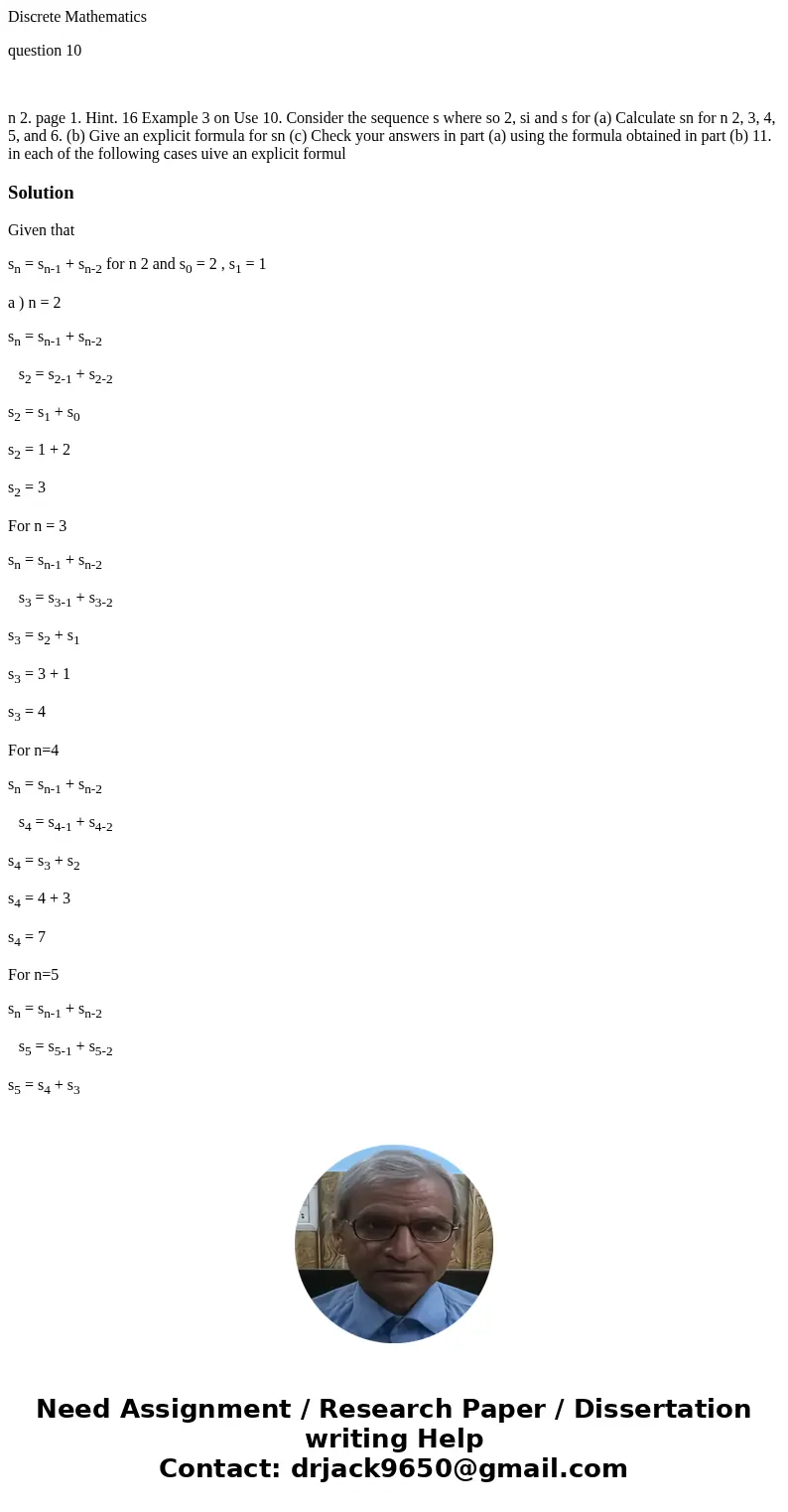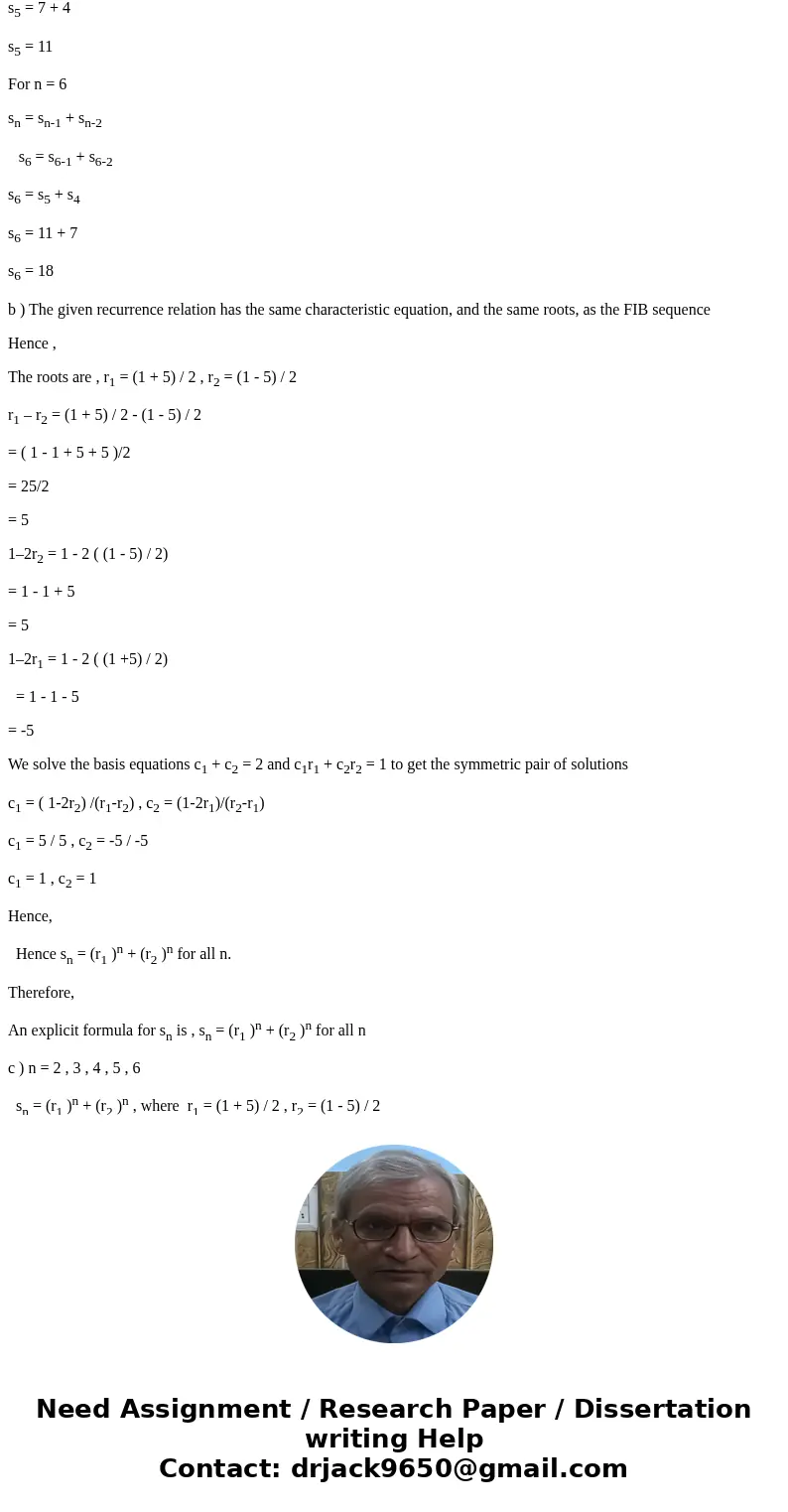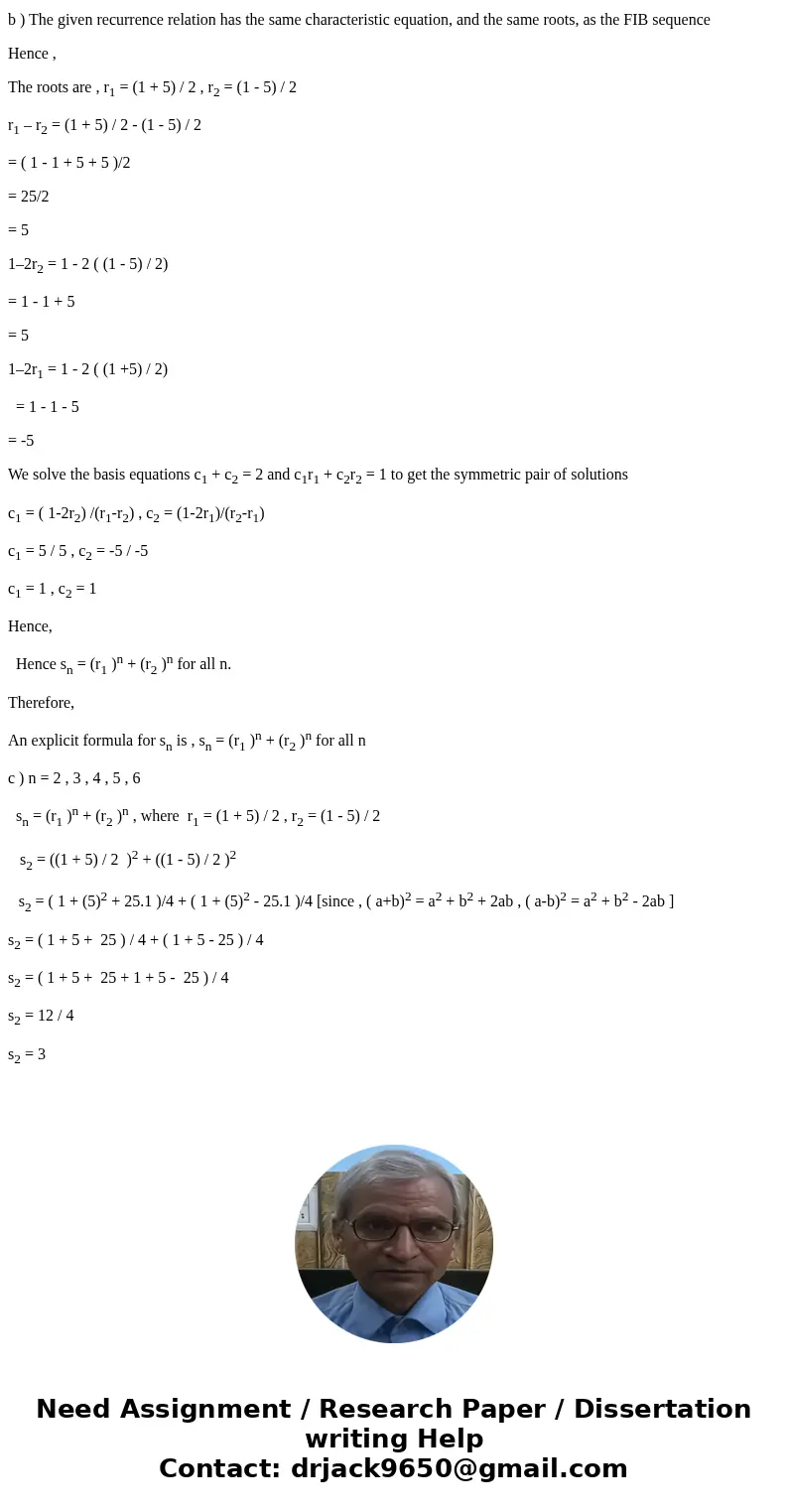Discrete Mathematics question 10 n 2 page 1 Hint 16 Example
Discrete Mathematics
question 10
Solution
Given that
sn = sn-1 + sn-2 for n 2 and s0 = 2 , s1 = 1
a ) n = 2
sn = sn-1 + sn-2
s2 = s2-1 + s2-2
s2 = s1 + s0
s2 = 1 + 2
s2 = 3
For n = 3
sn = sn-1 + sn-2
s3 = s3-1 + s3-2
s3 = s2 + s1
s3 = 3 + 1
s3 = 4
For n=4
sn = sn-1 + sn-2
s4 = s4-1 + s4-2
s4 = s3 + s2
s4 = 4 + 3
s4 = 7
For n=5
sn = sn-1 + sn-2
s5 = s5-1 + s5-2
s5 = s4 + s3
s5 = 7 + 4
s5 = 11
For n = 6
sn = sn-1 + sn-2
s6 = s6-1 + s6-2
s6 = s5 + s4
s6 = 11 + 7
s6 = 18
b ) The given recurrence relation has the same characteristic equation, and the same roots, as the FIB sequence
Hence ,
The roots are , r1 = (1 + 5) / 2 , r2 = (1 - 5) / 2
r1 – r2 = (1 + 5) / 2 - (1 - 5) / 2
= ( 1 - 1 + 5 + 5 )/2
= 25/2
= 5
1–2r2 = 1 - 2 ( (1 - 5) / 2)
= 1 - 1 + 5
= 5
1–2r1 = 1 - 2 ( (1 +5) / 2)
= 1 - 1 - 5
= -5
We solve the basis equations c1 + c2 = 2 and c1r1 + c2r2 = 1 to get the symmetric pair of solutions
c1 = ( 1-2r2) /(r1-r2) , c2 = (1-2r1)/(r2-r1)
c1 = 5 / 5 , c2 = -5 / -5
c1 = 1 , c2 = 1
Hence,
Hence sn = (r1 )n + (r2 )n for all n.
Therefore,
An explicit formula for sn is , sn = (r1 )n + (r2 )n for all n
c ) n = 2 , 3 , 4 , 5 , 6
sn = (r1 )n + (r2 )n , where r1 = (1 + 5) / 2 , r2 = (1 - 5) / 2
s2 = ((1 + 5) / 2 )2 + ((1 - 5) / 2 )2
s2 = ( 1 + (5)2 + 25.1 )/4 + ( 1 + (5)2 - 25.1 )/4 [since , ( a+b)2 = a2 + b2 + 2ab , ( a-b)2 = a2 + b2 - 2ab ]
s2 = ( 1 + 5 + 25 ) / 4 + ( 1 + 5 - 25 ) / 4
s2 = ( 1 + 5 + 25 + 1 + 5 - 25 ) / 4
s2 = 12 / 4
s2 = 3



 Homework Sourse
Homework Sourse